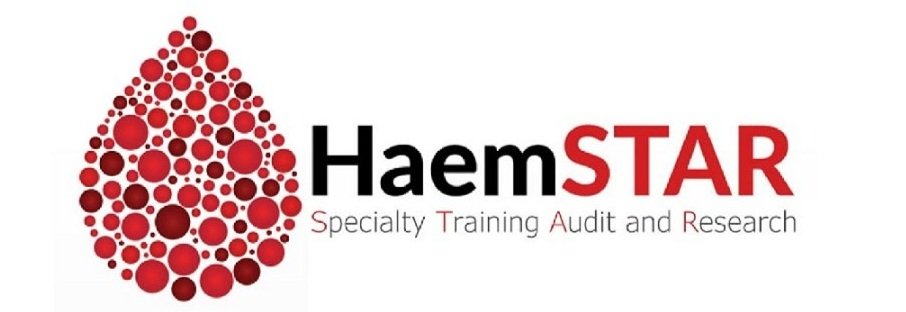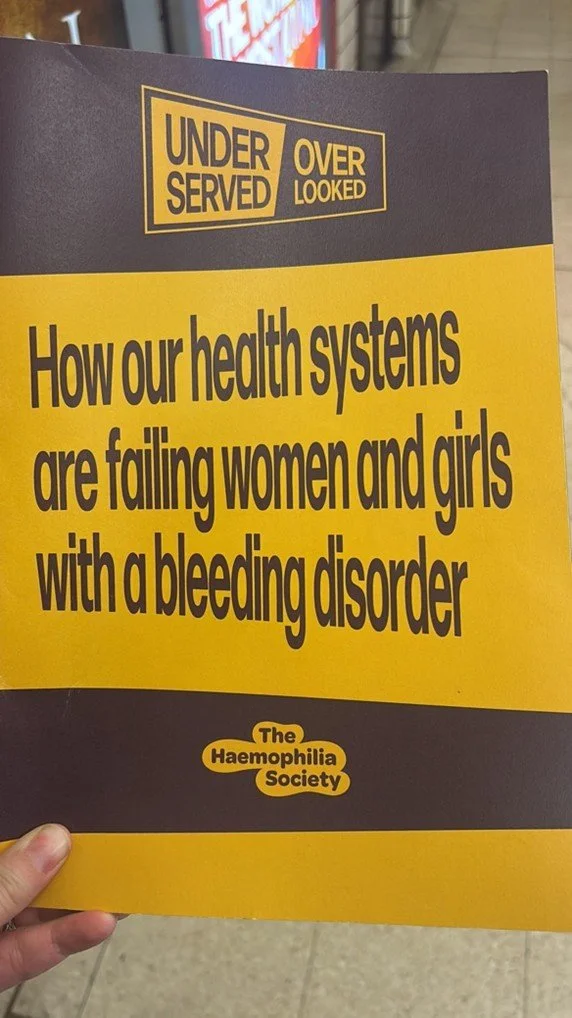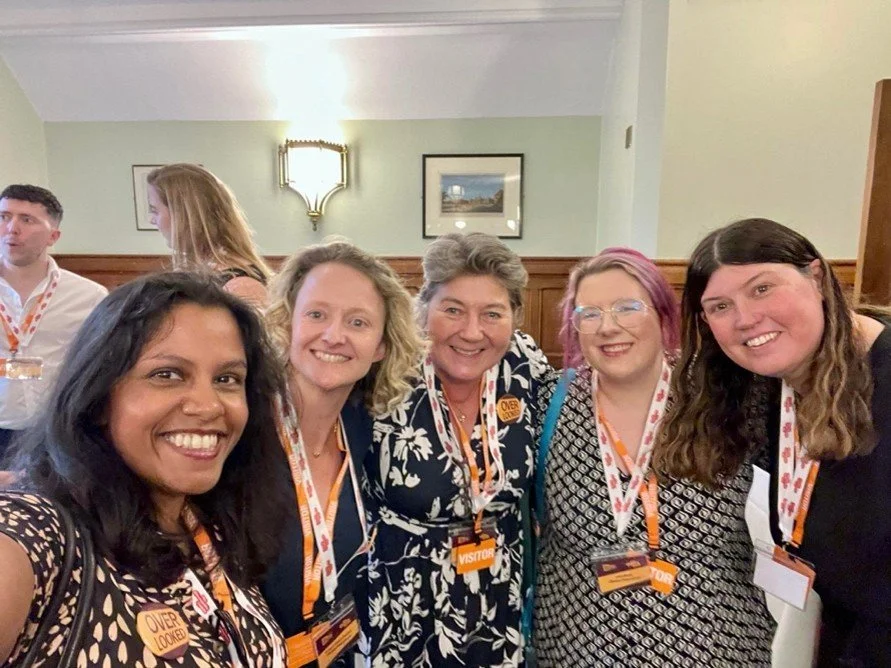Underserved/Overlooked: The Haemophilia Society Report into the failings of care for women and girls with bleeding disorders. Parliament Launch.
Dr Laura Knox
Women’s Health Lead - HaemSTAR
Glasgow
On Thursday the 3rd of July, I attended parliament to witness the launch of the Haemophilia Society’s report into the current failings in care for women and girls with bleeding disorders in the UK. (Underserved/Overlooked)
Alongside my colleagues, Jayna Mistry (Haematology Registrar & HaemSTAR committee member), Dr Gill Lowe (Consultant Haematologist) and Imogen Swart-Rimmer (Haematology Registrar), we travelled to Westminster on the kind invitation of the Haemophilia Society.
The report is a comprehensive study looking at all aspects of a girl and woman’s life with bleeding disorders in the UK currently, taking 3 years to fully compile.
The report found that, on average, women are diagnosed with a bleeding disorder 16 years later than men and it was estimated that up to 50,000 women live with an undiagnosed bleeding disorder.
This pattern of prolonged time to diagnosis discrepancy has also been reflected in the PIVOT-vWD UK study, which showed the median diagnosis was 10 years later in women compared to men.
Many of the women interviewed during this report felt their health concerns weren’t taken seriously, that there was a reluctance to accept women who have the haemophilia gene as anything other than “just carriers” and told that especially in cases of heavy menstrual bleeding they “just had to get on with it”. The patient stories included in the report are powerful and are across a range of diagnoses and age groups, the youngest being aged 9.
The report found that as well as underdiagnosis in women and girls that there was also significant gaps with treatment such as with prophylaxis therapies and limited access to specialist gynaecology input only 8 (out of 29) comprehensive bleeding disorder care centres offer joint haematology and gynaecology clinics. Furthermore, the discussion around heavy menstrual bleeding highlighted the limited access to management options and demonstrated the significantly higher rate of iron deficiency/iron deficiency anaemia in women with VWD such as in the PIVOT-vWD study.
The report provides 19 recommendations covering the entire patient journey from diagnosis, prophylaxis and treatment throughout a woman’s life from menarche to menopause.
At the report launch, hosted by Clive Efford MP, we heard from many of the contributors from the report, including researchers, patient, patient advocates and clinicians (including our very own Dr Lowe) and we have an opportunity to network and discuss the next steps we need to implement the recommendations made in this report.
This report is a call to action; it does not shy away from being critical of the current environment in which many girls and women with bleeding disorders have experienced and represents the first steps in a long road to overhauling bleeding disorder care.
Attending this launch was inspiring and thought-provoking. It has made me reflect on planned pieces of work I can do in my own personal professional sphere and as part of HaemSTAR. In the next year, we are launching WoMeN-ID, a project looking at heavy menstrual bleeding and iron deficiency, I’m really excited for this project and would welcome any one to get in touch if they would like to be involved.
The full report can be accessed via the Haemophilia Society’s website (https://haemophilia.org.uk/underserved-overlooked/)


